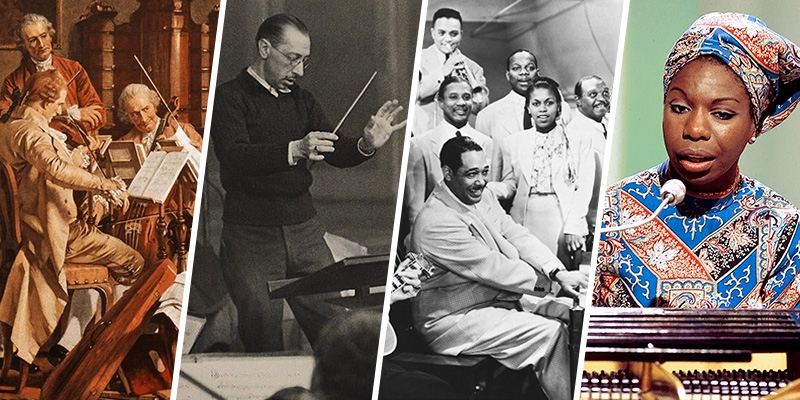HUMA UN1123 – Music Humanities explores forms of the Western musical imagination through compositions and performances studied in their historical contexts. The goals of the course are to awaken and encourage active comparative listening practices, to provide tools to respond critically to a variety of musical idioms, and to engage with significant debates about the character, purpose and value of music that have occupied music-makers and musical thinkers over the past several centuries.
Focusing on a selection of representative cases, it moves chronologically from the Middle Ages to the present, examining the choices and assumptions of composers, performers, audiences and patrons, considering the role of media of transmission and recording, and exploring what we can and cannot know about how music of the past may have sounded. Students’ critical perceptions and responses to music are the central scene of learning. Reflecting the emphasis of the Core Curriculum as a whole, class discussion and assignments prioritize direct engagement with music, recorded and live, as well as the interpretation of relevant primary sources. Finally, the extraordinary richness of musical life in New York is integral to the course, with attendance of live performance a major component of course activity. In addition to the units listed below, most course sections study rotating works performed live any given semester, as well as examples from the present.
For information about registering for Music Humanities, please refer to the College Bulletin, Engineering Bulletin, or General Studies Bulletin and consult your advising dean.
| CHAIR OF MUSIC HUMANITIES | |||
|---|---|---|---|
The Readings
All readings for Music Humanities will be made available to registered students in CourseWorks.
The Units
- Hildegard of Bingen (1098–1179)
- Josquin des Prez (c. 1450–1521)
- Claudio Monteverdi (1567–1643) and Barbara Strozzi (1619–1677)
- Johann Sebastian Bach (1685–1750)
- Joseph Bologne (1745–1799) and Wolfgang Amadeus Mozart (1756–1791)
- Ludwig van Beethoven (1770–1827)
- Franz Schubert (1797–1828) and Clara Schumann (1819–1896)
- Claude Debussy (1862–1918) and Arnold Schoenberg (1874–1951)
- Harry Burleigh (1866–1949), Bessie Smith (1892–1937) and Louis Armstrong (1901–1971)
- Igor Stravinsky (1882–1971) and Carlos Chávez (1899–1978)
- Duke Ellington (1899–1974) and Billie Holiday (1915–1959)
- John Cage (1912–1992), Tōru Takemitsu (1930–1996) and Pauline Oliveros (1932–2016)
- Nina Simone (1933–2003)
Additional Resources
Students also have access to additional resources developed for Music Humanities by Department of Music faculty, Music & Arts Library staff, and the Columbia Center for New Media Teaching and Learning.
